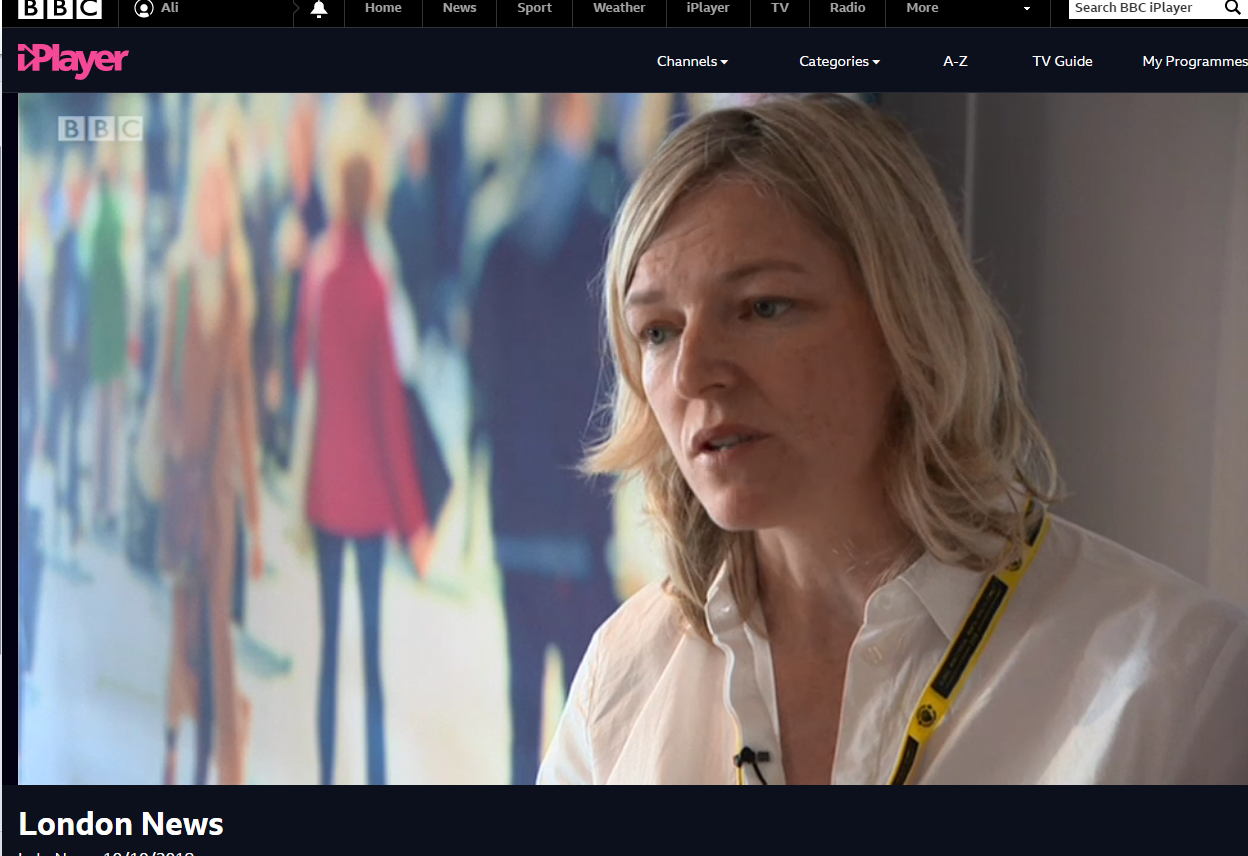Dealing with people who are traumatised and those who are bereaved
 In the run up to the anniversary many media outlets may seek interviews with those who have been traumatised by Grenfell and those who are bereaved.
In the run up to the anniversary many media outlets may seek interviews with those who have been traumatised by Grenfell and those who are bereaved.
Some individuals fall into both categories, of course, notably the Tower residents.
Moreover where bereavement has occurred in circumstances such as Grenfell the bereavement itself can cause PTSD, as has happened to many of the bereaved.
We have been asked by a number of journalists about the risks to interviewees and how the issue of Grenfell might be optimally handled.
We are aware that many journalists have had continuing contact with Grenfell residents and other affected individuals over the past year. We are also aware that many journalists have had a good deal of contact over the years with people affected by a wide range of tragedies. We assume that most of those asking for advice have considerable experience of dealing with distressed people.
There are two concerns:
Retraumatisation. Essentially this means PTSD reappearing in someone whose trauma has recovered either spontaneously or as a result of treatment. Retraumatisation can also refer to a worsening of trauma symptoms if someone is re-exposed to traumatic material, for instance by seeing a film of the event or experiencing a similar trauma or perhaps in the process of telling their story. Most people who have not been treated will retain some trauma symptoms even if their symptoms have reduced to a level where they no longer meet the full diagnosis of PTSD. It is this which makes people who have had trauma in the past more likely to develop PTSD if they are exposed to a new traumatic event.
Short term increases in distress/anxiety. This may include Dissociation (a state of overwhelming anxiety in which the individual becomes cut off from their surroundings and wrapped up in their memories of what happened) or other lesser but still dramatic distress. Both of these are real concerns.
It is very unlikely that simply telling one’s own story in one’s own words will cause retraumatisation. These are, after all, the memories of the individual and they have some control over what they recall. That is not totally correct in that telling one’s own story may bring up flashbacks and intrusions (unwanted memories). However if that happens it is likely that other reminders of events – of which there are many – will also trigger these things. It is possible, likely even, that rehearsing the event will lead to short term increase in anxiety (see below).
A common sense approach is probably sufficient to avoid the risk of retraumatisation. The difficulty comes if questioning becomes intrusive and starts to go into material that the individual is avoiding. It is best to avoid excessive probing and to ask open questions like “what do you remember” or “what happened to you that night?” which leave the affected person able to control what materials they process.
It is probably not a good idea to expose those who have been affected to materials from others. The potential impact of hearing the stories of others, or being exposed to material about the fire such as videos, should be fairly obvious given experiences at the inquiry. For those who have been bereaved the same principles apply. Open questions about the deceased are unlikely to complicate the grief reaction. Probing for the details of how they died may, however, increase the risks of trauma.
Particular care needs to be taken with children. Our advice would be to avoid interviewing children, particularly younger children. It is easy to inadvertently suggest lines of thought that may not have occurred to them, to put an unwanted and unhelpful structure on how they are thinking about events. For some young adults, usually those in their mid to late teens the principles are probably not greatly different to those in adults. However children mature at different rates and it can be difficult to judge just how mature a young adult is psychologically. Parents can sometimes be keen for their children to speak out in a way that the child, left to their own devices, would prefer not to do. And interviews take on a life of their own in the age of social media and may persist for many years. The long term consequences of giving an interview which may haunt the child for years are difficult to predict.
Telling the story of what happened to you, if you have been involved in a major incident, can be very distressing.
Tears and/or a short term increase in anxiety are to be expected. Those things do not in themselves necessarily cause longer term problems. However it is wise to try to interrupt or stop an interview where the interviewee is becoming very distressed. At best it is wise to change tack.
In extremis individuals may start to dissociate. In dissociation an individual starts to become very anxious and as their attention switches onto their inner state they become detached from what is going on around them and can become cut off and unresponsive to their surroundings. Flashbacks are a special sort of dissociation in which the individual starts to relive the traumatic experience.
Dissociation can be extremely dramatic and can cause panic in the observer. It is important to avoid dissociation if possible, and certainly if it occurs, not to panic oneself. Dissociative episodes will resolve on their own, given time. They are the manifestation of inner trauma so they do not cause trauma themselves. However they are extremely unpleasant for all concerned. The important thing is to keep calm and to try to “ground” the individual, to bring them back into the present gently.
Reassurance is often enough “you’re safe” “you’re here”. Make sure the individual is in a safe quiet place and keep talking to them. There are some more direct ways to try to terminate dissociative episodes but, on balance, it is probably best to leave those to others. If there is someone available who is experienced in working with trauma then calling them in is helpful. Typically people witnessing a dissociative episode want to do something, provide a chair, or a glass of water. None of these things are likely to be helpful in the short term, staying with the individual is. It is best to avoid the risk of dissociative episodes, although they can come on “out of the blue”. If an interviewee seems to be becoming detached, going off into a world of their own, change tack. Try to shift attention onto events occurring in the world around them. Talk about anything else which will get their attention, surroundings, their coat, the weather, anything immediate. Even the interviewer’s own life (but not their own experience of traumatic events).
Dr John Green Clinical Director Grenfell Tower NHS Mental Health Response Central and North West London NHS Foundation Trust CNWL
May 2018
Mental health reporting
Journalists looking for information on the most appropriate ways of reporting emotional crises or mental health issues - including suicide - may like to refer to the guidelines by the Samaritans which are supported by most media organisations and professional bodies.
